The trick with ranking is not to force it. When everybody’s trying to rank for the same keywords, there’s not much room for long-term development. This is where you can improve and find keywords semantically related to your niche, but not necessarily used by your competitors.
It’s in Google’s best interest to suggest semantic results, as closely related to the search query as possible. This should be in your best interest, too. But what happens when your industry’s a crowded market share where every digital marketing campaign is survival of the fittest at its best?

There are lots of recommendations, tips, and alternatives to paid tools. We thought of 5 fresh and unique tips to find the right keywords for SEO. Anxious to get started?
Get Keyword Suggestions Using Free Stock Image Sites
Generate Keyword Ideas Using Offline Magazines
More Keywords Suggestions from Amazon
Answer the Public
The Wikipedia Database
Before we get started on finding lots of keyword opportunities, there’s just one more thing. Take a second to understand how much search engines have evolved. When you type ‘Halloween costume Batman’ on Google, it won’t distinctly show you results of Halloween costumes in general and Batman related content. Now, it looks beyond your words and shows you whatever is most relevant for you, in this case understanding that it’s a Batman costume you’re looking for.

This is why approximately 70% of the search results have derived from the words typed when searching, according to studies made by Google itself – because the search engine is beginning to understand your intention more than the words you’re expressing it with. It’s true that results can vary depending on your previous searches, your location, and other variables, but browsing in Incognito mode can change this, if you’re looking for more ‘objective’ results.
1. Get Keyword Suggestions Using Free Stock Image Sites
At this point, it’s clear therefore that the key is to look in new places for relevant keywords. Depending on your niche, it may be a great start to look for pictures. Now, Googlebot can understand by itself very accurately the content of a picture using Automatic Object Detection in Images.

On top of that, we are encouraged to add ALT description to every image we have on our websites in terms of SEO purposes. Reversing this principle, we’ll notice that looking for keywords on picture descriptions is an easy, effective way to generate new ideas.
For that matter, photo sites are a great source of inspiration, particularly if your niche has enough graphic applications as to find useful photo related keywords. For instance, if you’re looking for dog food, you’ll be shown both branded and non-commercial descriptions of dog food, as they are characterized in the photo captions.
There are various sites where you’ll find access to online pictures that are not protected by copyrights, and you should find the most suitable ones for your industry. You’ll see that the sites are of an impressive versatility, which means that the search patterns differ, along with the suggested keywords and the images you’ll find. Here are some great sources of inspiration:
1.1 Pixabay
Pixabay has a lot of great value since it has over 1.6 million photos, and you can split your search by category. This way, it’s easier to find out how searches differ from one category to another.

The nice part of this “keyword research tool” is the multiple choices for language support, which allows you to search for keyword ideas in your own language. You don’t have to translate them by yourself.
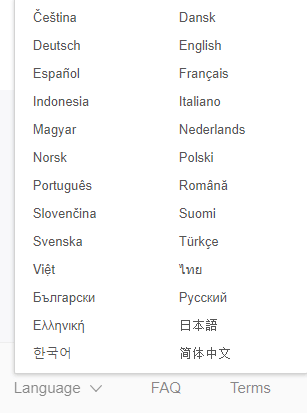
Pixabay is more of a community than a conglomerate of pictures, and it can work as a niched, micro social-media-site with followers, messages and all the perks. I find it important to have a constant source of copyright-free images for current usage, and Pixabay seems to solve two problems at once: free photos and brand new keywords from their descriptions.
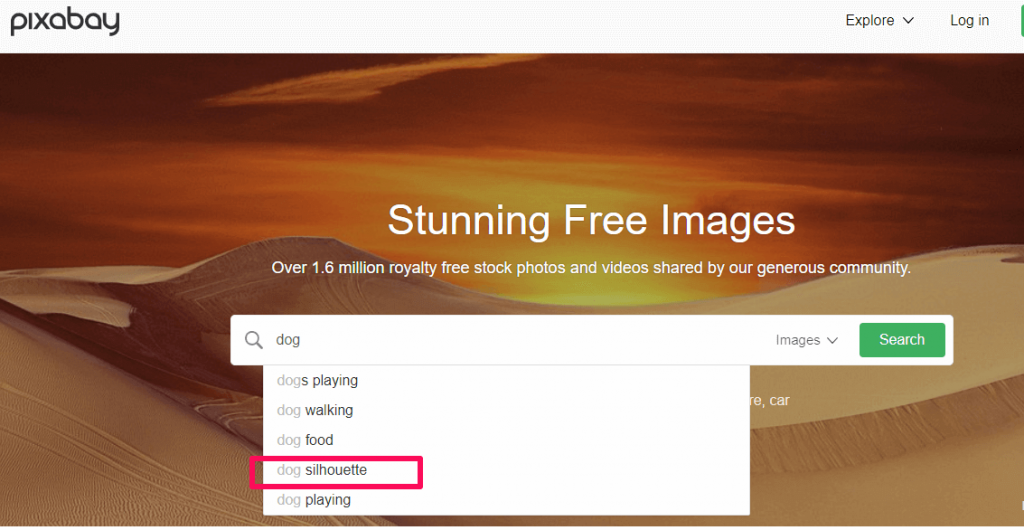
Also, being a community-based website, it is free to use and your contribution should consist of uploading photos on your behalf. This social payment isn’t, however, compulsory, and you can use the site regardless of your personal portfolio. I would suggest uploading images whenever it’s possible, but it is a matter of personal choice.
We typed “dog” into the search box and one of the search keywords – “silhouette” – it isn’t your generic keyword when it comes to dog-related content, neither is it one of the most popularly encountered. Despite this, it’s a suitable word to be integrated into your articles, and the search engine will associate it with your topic without any problems.
1.2 Shutterstock
Shutterstock is a paid service. The pictures here do have copyright, but this is an additional sign of quality. People who pay this service to be given relevant photos are tech-oriented people, who work in online industries and value precision. Therefore, the keywords you’ll find generated from previous searches and from photo descriptions are both specific in nature and refreshing for your niche.

The subscribers will target keywords that are most relevant in order to be shown the proper photos. It’s the paid subscription and the reputation for reliability that makes this a viable source for taking a fresh look at the most fitting keywords in your niche.
The autocomplete suggestions will be relevant and refreshing, although not always very niched. But in the context of semantic focus from the search engines, being relevant trumps being specific – if the autofill suggests previous searches on a word, this can be easily integrated semantically on our topic.
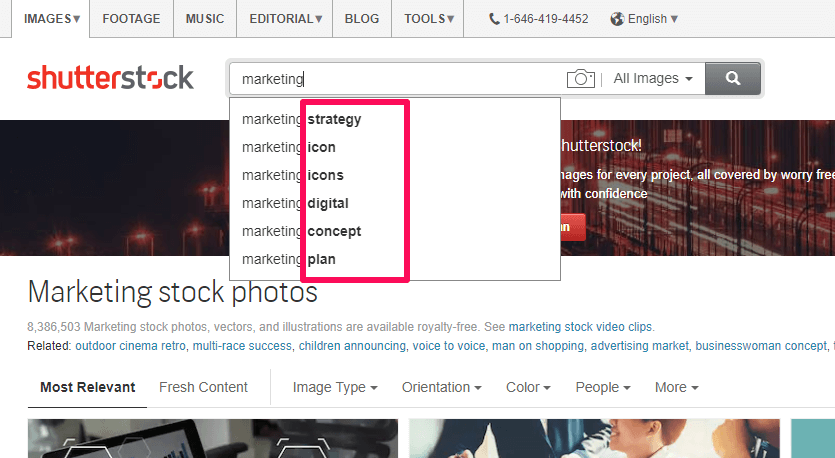
1.3 Stockvault
Stockvault is a free micro search engine for photos and it’s great for searches of highly popular industries, and not very specific niches since it’s used by people from different environments. It has probably one of the most complete category lists which makes it very easy to search and see accurate keyword results.
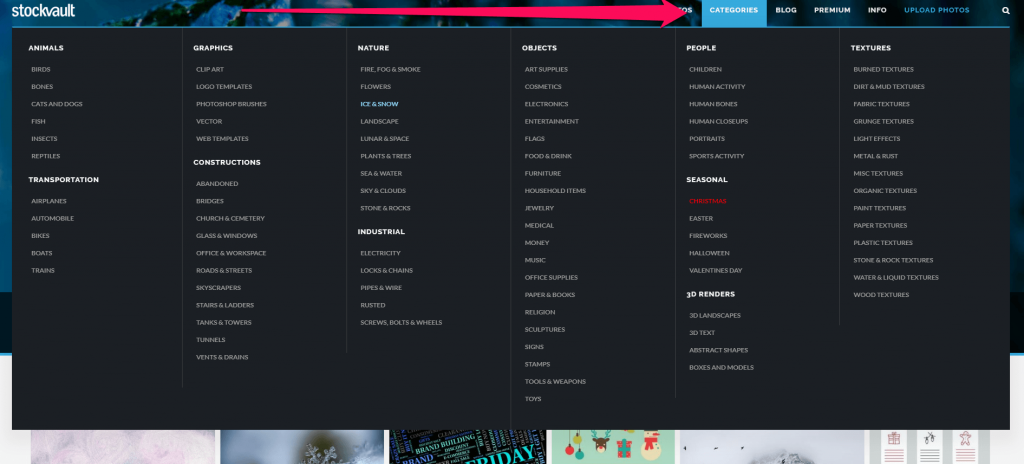
And because they’re so versatile, it’s best to search for a word in a category, and then see the description of the pictures returned as results. Also, you can see how they differ depending on the category you choose (for instance, men vs. women). The returned results, as well as the autofill suggestions, will differ depending on the previous searching behavior on that particular category.
For example, if you search for coffee and click on an image, you’ll see the category and lots of tags that can be used as semantic keywords in your content creation process. Stockvault offers valuable contextual keywords and backgrounds for every search term and every picture you find. It can be an intelligent Adwords Keyword Planner alternative.
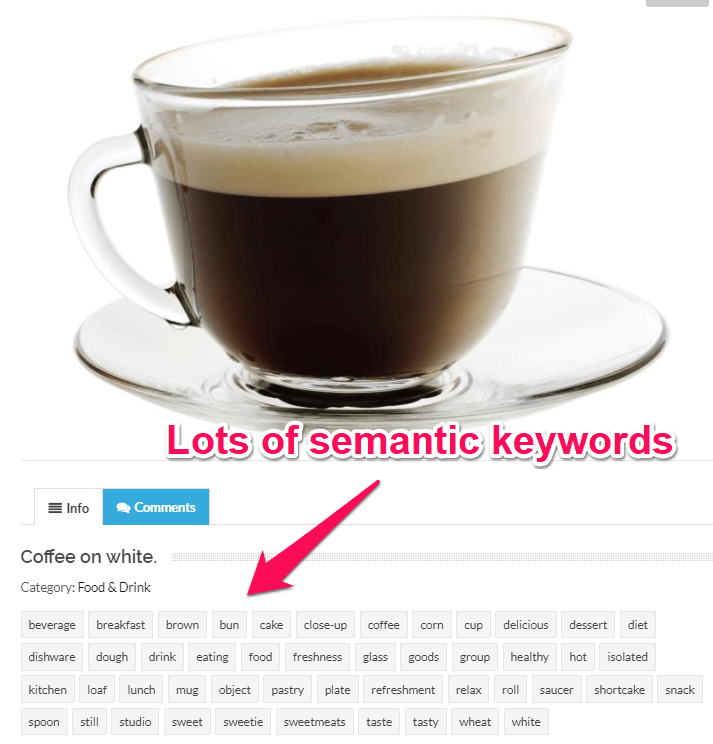
This is, therefore, the cornucopia of differential approach for distinct targets. If you’re looking for keywords for distinct approaches between several target groups, this site does the job pretty well.
1.4 Freedigitalphotos
Freedigitalphotos is another reliable source when looking for popular keyword ideas. Despite being free, there’s nothing cheap about it. You’ll always have plenty of search results, each of which has a caption text, which you’ll find more than useful since it doesn’t require manually going through all the results.

You can set up your search by an advanced set of parameters, thus influencing the results. One other very interesting feature is the ability to exclude keywords from your returned searches. If, for instance, you want to search “Coca-Cola“ but not “Pepsi Cola“, you can always use the ‘Exclude Keywords’ filter. In this particular case, “Pepsi Cola” would categorize as a negative keyword.

2. Generate Keyword Ideas Using Offline Magazines
Start reading magazines. See which keywords are used by those in your industry in content marketing – as the general style is so different from online to print, you’ll get plenty of ideas that you’ve been ignoring because of SEO assumptions.
When working online, it’s crucial to keep a fresh mind. And if you want different results in rankings than your competitors, maybe you should look where they don’t, too. As we’ve documented before, magazines are a divergent resource with unique content, that could generate great keywords for your business.

I’ll only cover the most important reason – magazines are a perfect resource for someone preoccupied of words. After all, they provide what we hope for the web to become one day in terms of content: articles that attract through subject and writing, without being obsessed with keywords and rankings. And perhaps this is what we should all turn towards to keep a fresh mind.
There are hyper-targeted niches in the magazine market. If your industry allows it (and chances are, if you’re reading this post, it does!), take a look in the niche magazines. The intent for great content on a magazine is exceedingly higher since the investment is thousands of dollars and the editors don’t afford to make mistakes, while a blog is much easier to manage, promote and reinvent every time an article chops of the numbers of the audience.
3. More Keywords Suggestions from Amazon
Another alternative to Google Keywords Planner is Amazon. It is the Google of selling. Its power consists of being so huge, that it’s impossible not to find what you’re looking for, from beauty products to books and video games. It’s also where you can find out what people search for, to a very specific extent.
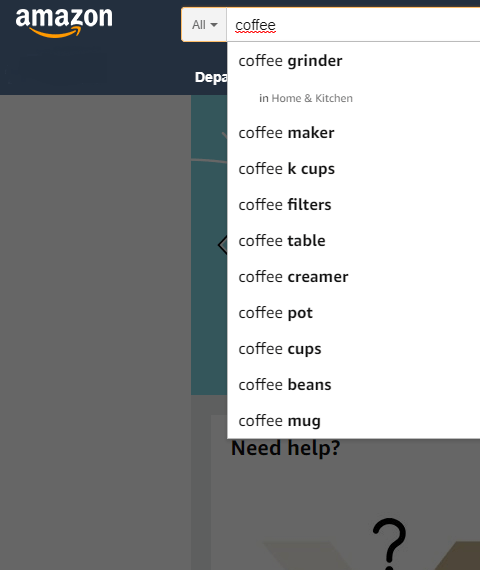
Because of all its categories, there are two kinds of insight: one from the different search suggestions you’ll get for the same word in distinct categories and one from the category and its suggestions that you’re offered when searching for a product.
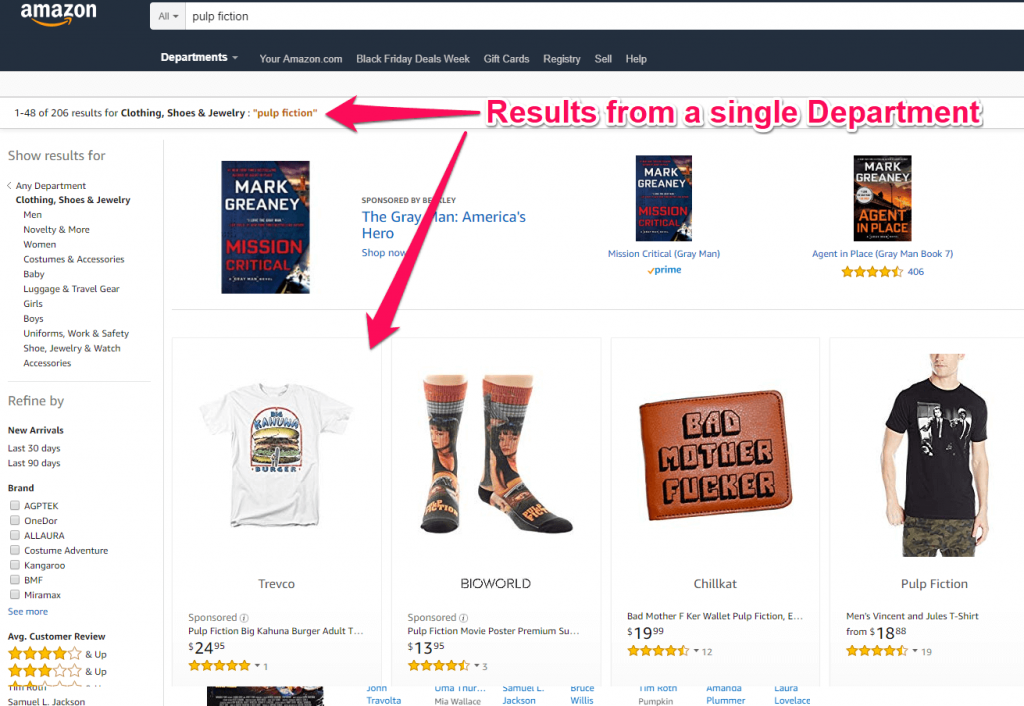
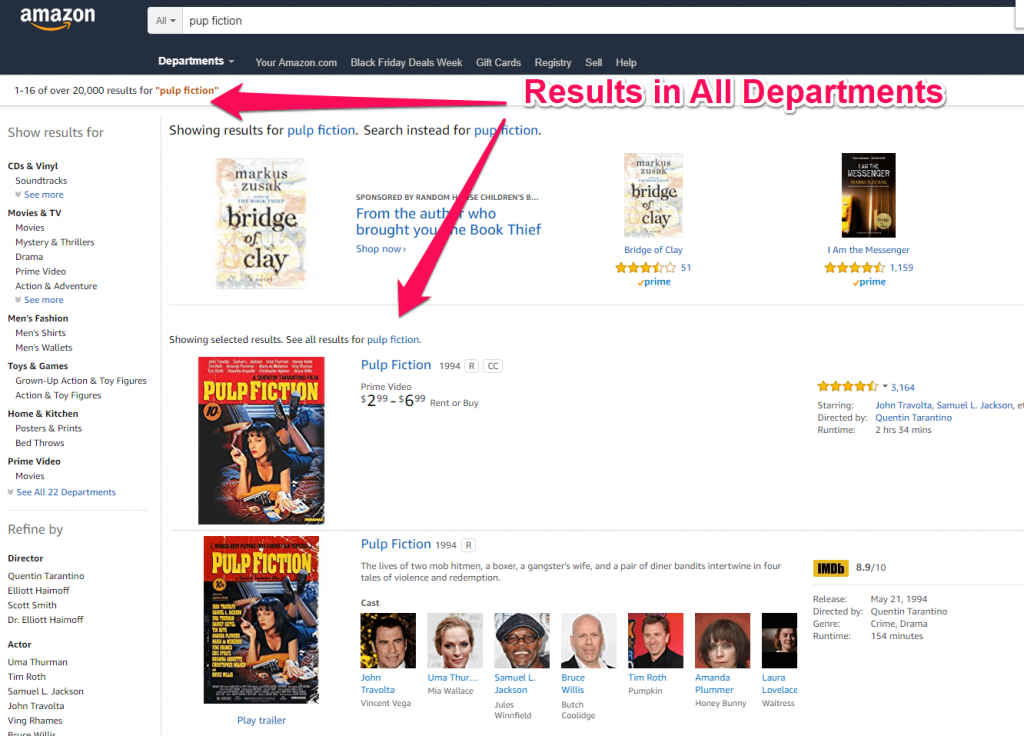
Because Amazon is such a valuable source, you can consult third parties for advanced results for what are people searching for. Merchantwords, for instance, is a highly professional paid service that puts the Amazon search database in perspective.
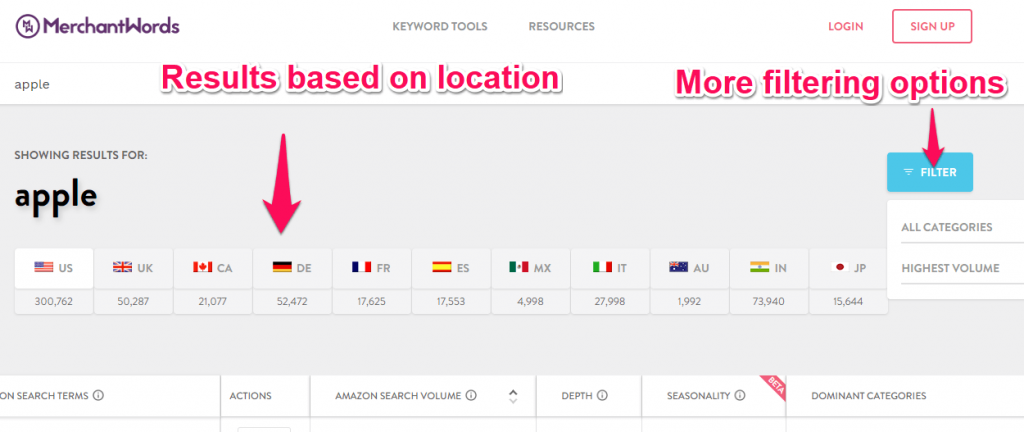
“Apple“ is one of the most popular Amazon searches. Being able to organize the results after highest/lowest montly search volume or by category order allows us to examine the specific parts that we find most relevant for our online business. Depending on how trending your results are, using this tool can help you find keywords more than just once, by identifying the trending topics the exact ways they’re being searched on the site.
4. Answer the Public
Writing perennial articles isn’t easy, particularly when evergreen content seems to have additional requirements for making a good impression and not looking like junk. It takes vision to maintain relevance over time. Answerthepublic can be used as a keyword research tool very easy. It is a site that suggests questions people would ask on a different topic or keyword that you insert, which you can materialize in new keywords or – why not? – in new content ideas.

The homepage of this site is a very impatient man, in a sweater, who seems eager to hear you answering a question that is of elevated interest for a larger public. There’s also a number of popular countries from which you can select, and the results differ from each local trending search.

The results are formulated as popular questions, comparisons, popular phrases containing the keyword, and they’re followed by alphabetical suggestions of the desired topics. You can download the whole keyword data into a .csv.

5. The Wikipedia Database
Wikipedia is a source of keyword research in multiple languages, especially since it covers a lot of topics. Because the articles here are information-centric and not keyword-centric, you may find a reinvigorating perspective on the textual approach.
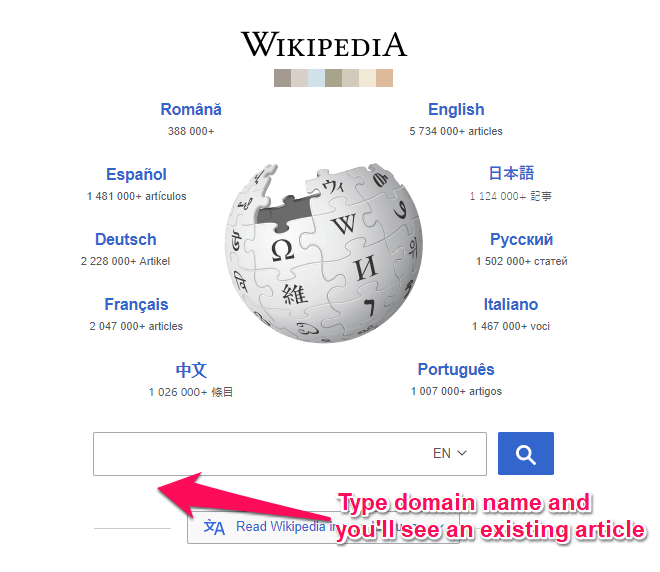
Of course, the encyclopedia is unbiased (or it should be), and most of the articles aren’t necessarily written in a very creative way. But by not abiding to the general rules of online writings, the result will be similar to the one produced by reading niche magazines – only in a different writing style.
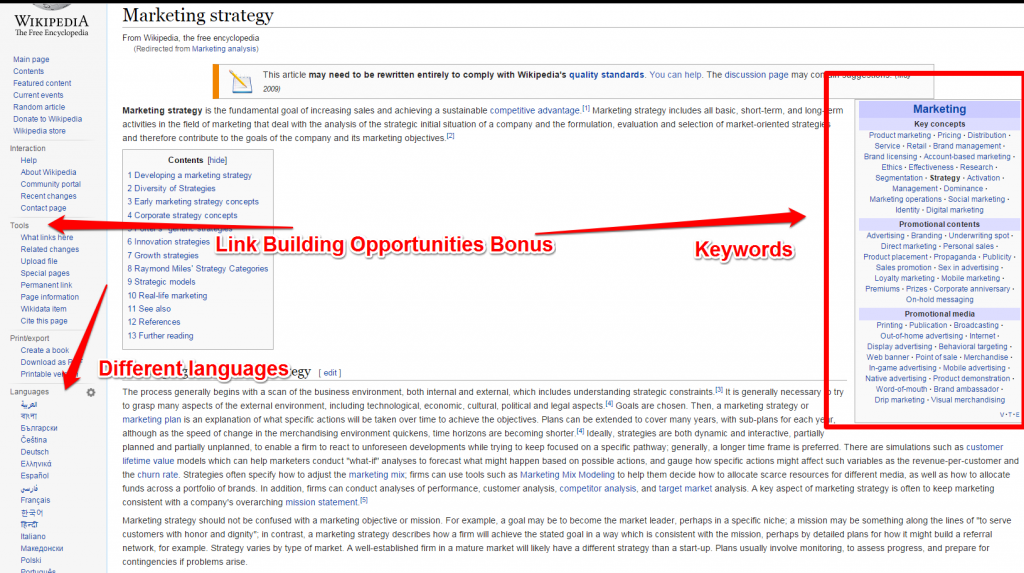
Conclusion
Whenever the competition is too high, you risk tilting at windmills. This happens because you, as well as your competitors, are trying hard to rank for the same keywords, suggested by (roughly) the same sources. I always search incognito whenever there’s something I want to take a fresh look at. Because, smart as they are, search engines memorize my history and suggest answers related to my previous queries. The same kind of story happens here – you’ll get to run in circles pretty soon.
Using the same keywords as your competitors when writing in your niche often turns the common words into the ground zero in SERPS. On the other hand, there are plenty of creative ways of keeping a fresh perspective on your work. Looking for answers (or questions?) where nobody else does makes the difference between a trendsetter and the next in line. Plus, finding unique keywords research tools can help you give a boost to your SEO strategy.
Note: This blog post is an improved version of an older one we had. We considered this article to be valuable for those interested in outranking their competitors and the information needed a refresh because the online market is evolving very quickly.
The post 5 Keyword Research Tips That Will Blow Your Mind appeared first on SEO Blog | cognitiveSEO Blog on SEO Tactics & Strategies.
Read more: cognitiveseo.com
